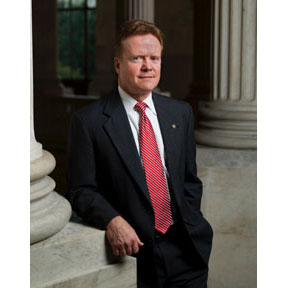
“What we have been witnessing over the past several years is not simply a series of tactical disputes. They are an accumulation of tactical incidents designed to pursue a larger strategic agenda. Virtually every country in the region understands that. It is the duty of the United States to respond, carefully and fully, to it,” said Webb.
In July the Chinese government established a prefectural-level government called Sansha on Woody Island located in the Paracel Islands chain, and appointed 45 legislators, a Standing Committee, a mayor and a vice mayor. Woody Island, also called Yongxing, has no indigenous population, no natural water supply. The jurisdiction of this new prefecture, according to Chinese state media, extends to more than 200 islets and over 2 million square kilometers of water.
On this move, Webb said, “China’s actions this past year go a step farther in attempting to expand administrative and physical control over areas in the South China Sea previously out of its internationally recognized jurisdiction….All of East Asia is watching the United States’ response to these recent Chinese actions in the South China Sea and East China Sea, particularly the countries of ASEAN, with whom we have shared expanding relations, and Japan and the Philippines, two countries with whom we share the solemn commitment of being treaty allies.”
Tensions between China and Japan have escalated in the past week over claims to the Senkaku Islands. Last Friday, China sent six maritime surveillance ships into waters around the islands—the largest-ever intrusion by China into this area. On Tuesday, following a meeting with Secretary of Defense Panetta in Beijing, China’s defense minister stated that China reserves the right to act further against Japan in this dispute.
“This threat has direct consequences for the United States,” said Webb “In 2004, the Bush administration stated clearly that the Japanese-U.S. Security Treaty obligations extended to the Senkaku Islands, which according to accepted principles of international law, are under the administrative control of Japan. Secretary Clinton reiterated this position in 2010 following the incident with the Chinese fishing boat. Given the recent incursion by China into waters around the Senkaku Islands, it is vital that we continue to state clearly our obligations under this security treaty.”
Webb has expressed concerns over sovereignty issues in this region for more than 16 years. His first hearing upon assuming chairmanship of the Senate Foreign Relations East Asian and Pacific Affairs Subcommittee was on maritime territorial disputes and sovereignty issues in Asia in July 2009.
Webb was the original sponsor of a resolution, unanimously approved by the Senate in June 2011, deploring the use of force by China in the South China Sea and calling for a peaceful, multilateral resolution to maritime territorial disputes in Southeast Asia. In July 2012, Sen. Webb delivered remarks on the Senate floor questioning the legality of China’s the unilateral assertion of control of disputed territories in the South China Sea. In his speech, he urged the U.S. State Department to clarify the situation with China and report back to Congress. Last month, the U.S. Senate unanimously passed a resolution (S. Res. 524) declaring China’s actions “are contrary to agreed upon principles with regard to resolving disputes and impede a peaceful resolution.”
Webb has worked and traveled throughout East Asia and Southeast Asia for more than four decades—as a Marine Corps Officer, a defense planner, a journalist, a novelist, a senior official in the Department of Defense, Secretary of the Navy, and as a business consultant.










